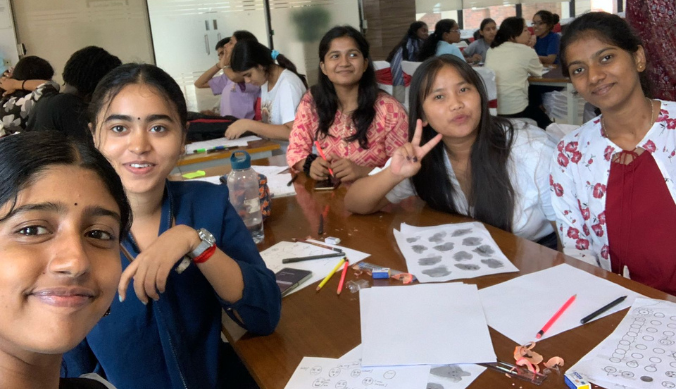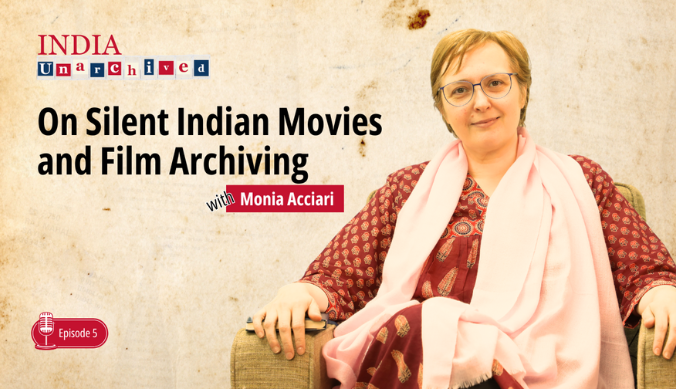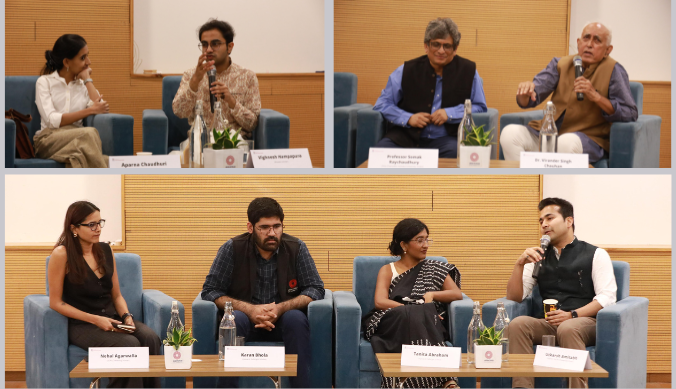Building Connections Through Art: The Vision Behind The Abstract Room
Here’s how YIF Sankalp Sharma built The Abstract Room, a global community for connecting people through cinema, literature, and art-driven discussions.
Sankalp Sharma hails from the business city of Surat, thus enterprising comes naturally to him. Though he only partially realised his dream of playing cricket at the highest level by competing at the state level, he found a new passion in arts and entrepreneurship. As the founder of The Abstract Room, a global social community dedicated to creating unique experiences around cinema, literature, and other forms of art, Sankalp has sharpened his skills in event curation and management, community engagement, social media and art criticism. He also carries some professional experience in creative production, podcasting and screenwriting.
Academically, Sankalp has completed his Bachelor’s in Management Studies and Marketing from Narsee Monjee College of Commerce and Economics, Mumbai, and then pursued the Young India Fellowship, a prestigious postgraduate liberal arts diploma from Ashoka University.
When not juggling two full-time jobs, you can find him working out, or diving into obscure films and books! In conversation with us, Sankalp shares about his passion about storytelling, cinema and his entrepreneurial journey!

Upon feeling the lack of a supportive community to nurture my fresh interests, I started an online platform called The Abstract Room. A sanctuary for individuals like me, who have an urge to explore the profound impact of storytelling and a yearning to discuss them without inhibition or fear of judgement.
What inspired you to start The Abstract Room, and what has the journey been like up to this point?
Growing up, I was not exposed to quality storytelling in the form of cinema, literature, music or poetry. This led to my perception being that they were unimportant and something that one must keep in the periphery of their life. I lacked the ability to think critically and articulate my thoughts on the things around me. It wasn’t until my college years that I felt the need to become socially aware. Stories became a unique and accessible way for me to learn more about the state of the world, myself and my emotions, and that of others.
I felt the urge to share and discuss this newfound passion with others and sought avenues for the same. I discovered a glaring absence of spaces where people could come together, explore stories and discuss them. I found the existing book and film clubs and debating societies to be exclusionary in more ways than one.
The Abstract Room journey has been as remarkable as it’s been resilient. It started as a zero-investment venture and has sustained itself since day one, attracting a thriving community that spans over 3,100 people across 15 countries, from 15-year-old students to retired professionals in their 70s. Launched during the COVID-19 pandemic as a purely online platform, The Abstract Room offered a safe space for people to unwind and connect through discussions on films, books, and art. Over the last 4.5 years, it has flourished into nearly 400 online events and more than 30 in-person events across Mumbai, Pune, Surat, Haryana, and Uttarakhand. Our gatherings have evolved from intimate film and book discussions to a lively mix of open mics, screenings, artist interviews, quizzes, jamming sessions, and educational workshops. What started as an online refuge has transformed into a vibrant, global community for art, conversation, and creativity.
How has Ashoka’s interdisciplinary approach impacted your entrepreneurial mindset?
Through the Young India Fellowship’s Experiential Learning Module, I piloted a new vertical of The Abstract Room, designing film-based workshops for school and college students to impart crucial skills and life lessons. With a dedicated team, a seed fund of 25,000 INR, and structured mentorship, we developed five impactful workshops, engaging over 600 students from diverse socioeconomic backgrounds across three states. This hands-on experience not only provided me with an enterprising structure and solidified our approach but also earned us the ‘Best ELM Award’ for achieving meaningful impact and validating a model with promising growth potential.
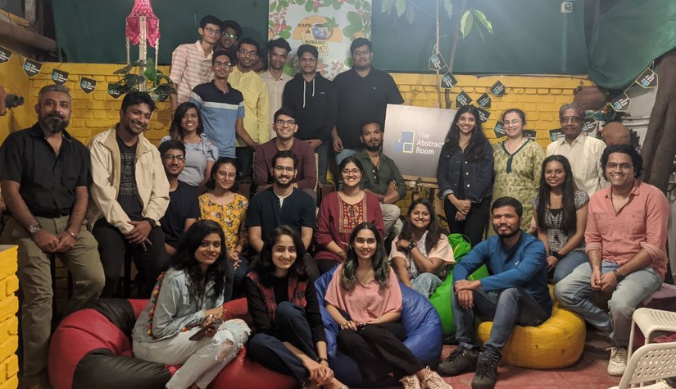
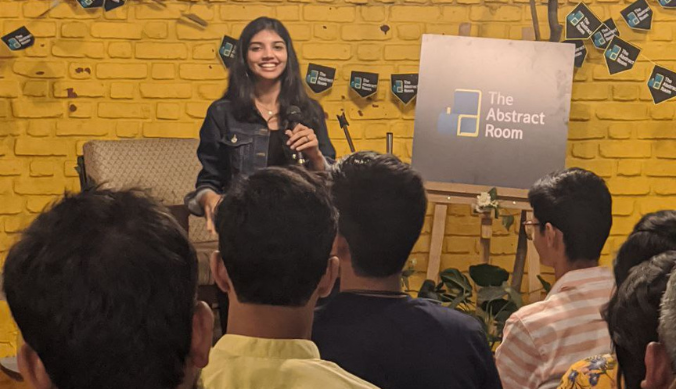
What positive impact does your venture aim to bring to the community or industry?
The Abstract Room was born from a desire to create a space where people could come together to explore and discuss stories freely, without judgment. What began as a small, weekly online meetup has evolved into a vibrant, global community—more than just a platform, it has become a family. In an era dominated by doom-scrolling, shallow consumption, and fleeting attention spans, we invite our members to pause, reflect, and truly engage with art. Through a shared love for cinema, literature, poetry, and music, we have built a community grounded in empathy, curiosity, and self-expression.
We aim to provide a welcoming place where diverse voices are heard, complex topics are explored, and genuine connections are made. The Abstract Room encourages members to look beyond simple opinions or social media soundbites, cultivating a deeper understanding and appreciation for different perspectives.
About Abstract Room:
The Abstract Room is a social community that welcomes anyone interested in exploring stories across various formats, including cinema, literature, and other forms of art. Operating on a membership model, as of August 2024, over 3,000 people have participated in their events, with more than 450 subscribing to their membership. Their offerings include film screenings and discussions, book discussions, open mics, conversations with filmmakers, and music appreciation sessions, attracting school and college students, professionals, and businesspeople alike.
Our motto, ‘Pause for Art’, reflects our mission to help people connect through meaningful conversations and the restorative power of stories. It’s a place for rest, insight, and growth—a community that embraces vulnerability, celebrates creativity and upholds ideals that we hope to see more widely embraced in the world.
Study at Ashoka










